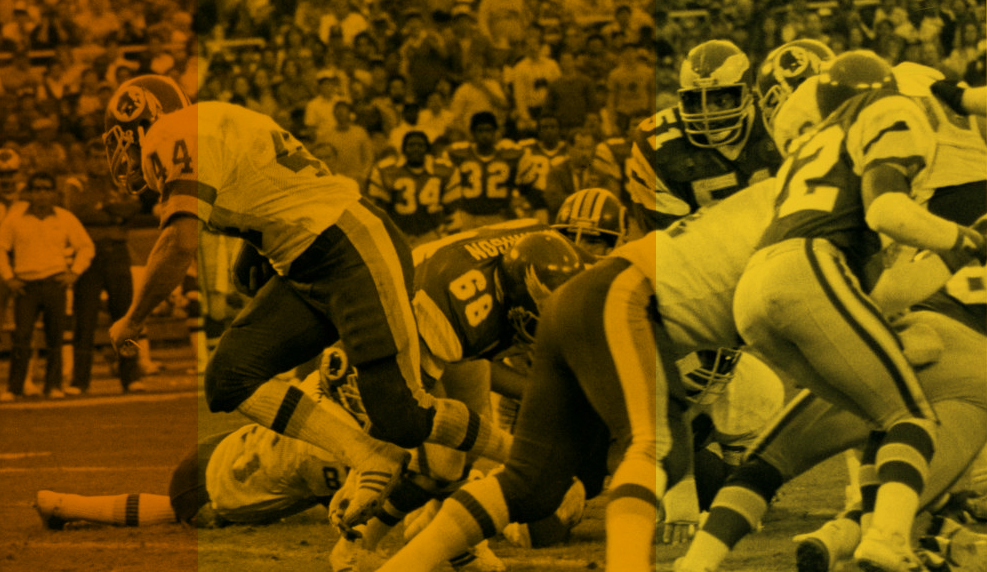Eric Dickerson Slams NFL for Ignoring Former Players, Hopes Dave Duerson’s Suicide Sparks Change
By: Christian Red
New York Daily News
03/01/2011
Eric Dickerson carved up more than 13,000 rushing yards during his pro football career, one that had stops in Los Angeles (twice), Indianapolis and Atlanta, where he ended his playing days after the 1993 season. Like many of his former opponents and teammates, however, the mileage eventually caught up with Dickerson years later. In the 50-year-old Dickerson’s case, all those punishing hits endured on the gridiron exacted a brutal toll on his back years after he left the game.
“I’m lying on the table right now,” says Dickerson from a hospital examination room recently, while describing debilitating back pain. “It’s a great sport. I loved playing football. But it is a brutal sport.”
Dickerson played during the same era as the late Chicago Bear Dave Duerson, who committed suicide Feb. 17. Dickerson said he “had not seen Dave in a year,” but the news was nonetheless “a shock.” The outspoken Dickerson, however, was quick to point out that Duerson‘s death will probably be a distant memory by the end of the year. Instead of the tragedy serving as a wake-up call for the National Football League and the players’ union to examine thorny issues regarding retired players – the NFL pension plan that Dickerson calls “a joke,” disability claims or players getting treatment for head injuries or post-concussion symptoms – Dickerson thinks it will be status quo as usual.
“I hope (Duerson’s death) will change things. It’s the hot topic now, but will anybody be talking about Duerson in six months? The league just doesn’t take care of these guys,” says Dickerson, referring to retired players. “It’s like when you’re done playing, ‘Get the hell out of here.’ Our pension’s a joke. I get about $1,100 a month. (Hall of Fame player) Deacon Jones gets like $200 a month. Guys who apply for benefits get rejected repeatedly. These guys need help badly.”
Many ex-NFL players share Dickerson’s view that the league has turned its back on retired players, especially those too financially strapped to afford medical attention. But two medical organizations that operate pro bono – Pain Alternatives, Solutions and Treatments (PAST) based in Clifton, New Jersey and the Center for BrainHealth in Dallas, Texas – have helped dozens of retired players. Physicians at both facilities said depression is a common symptom of players who have suffered brain injuries or concussions. Both Duerson and former Eagles safety Andre Waters reportedly suffered from depression before committing suicide.
“Andre Waters and Duerson – these deaths aren’t just a coincidence,” says Dickerson. “That’s not something young, black men do, stick a gun to your head and kill ourselves.”
Waters was 44 when he died and Duerson was 50. Dickerson added that he has had a brain scan to check for any trauma or neurological damage. He said his long-term memory appears to be sound, but that his short-term memory is a different story.
“I’ll be in the middle of a conversation with somebody, and I can’t remember certain things we’ve talked about. We’ll laugh about it, but then I think ‘It’s not really funny.’ I don’t know if I’ll have memory loss later, but a lot of guys talk about the hits they took and head injuries they had,” says Dickerson.
The league has taken steps toward addressing head injuries – whether it’s fining players for illegal hits or having players who’ve sustained concussions remain sidelined until they are cleared by an independent neurologist.
“Unfortunately concussions are an inherent risk to football,” says former Cowboys fullback Daryl Johnston. “You’re never going to be able to eliminate them. I think that’s something that people have to understand. Guys get bigger and faster every year, and the collisions become more and more violent. You’re never going to have game of football be concussion-free.”
Johnston is an advisory board chair of the BrainHealth Institute for Professional Athletes, which is part of the 11-year-old Center for BrainHealth, and he has been trying to steer former teammates and opponents to the Dallas center to get tested.
“We lose too many (players) each year,” adds Johnston, 45. “It’s amazing to me how many guys we lose that are in their 50s each year. When people talk about the average life expectancy of a player within the NFL, we always expected the ages to go up and keep pace with medical. I think if you go back 20 years and look at the average life expectancy and then look at what it is today, it hasn’t changed a whole lot.”
And now the NFL is considering lengthening the regular season from 16 to 18 games, a move that does not sit well with Dickerson or with Duerson’s former Bears coach Mike Ditka.
“You’ve got to understand why they’re talking about it. It’s about money. And there’s enough money being made right now. If it’s not broke, don’t fix it,” says Ditka. Dickerson, meanwhile, marvels at how football has become “the most lucrative sport,” yet the former players who helped build the game’s popularity are left on the outside looking in.
“I don’t like what football has become,” says Dickerson.
Click here to read the full story in the New York Daily News.


